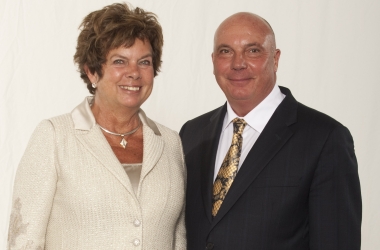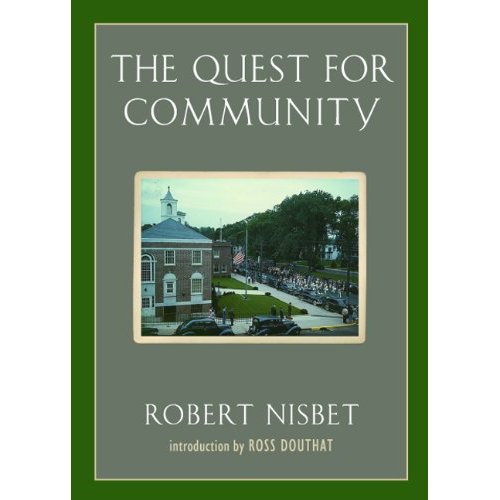In my opinion, voluntary community groups (tribes) are one of the keys to restoring the health of Western Civilization. Although there are more communication tools today than ever before (phone calls, texting, email, Facebook, Twitter, Linked In, Skype, etc), there seems to be less real dialogue and fellowship. Community is an essential piece in recreating the bonds of belonging within our isolated world. Imagine marrying the best of community with the best in leadership and you have the LIFE model. Our goal isn’t just to build a successful business; instead, our primary objective is to restore our despairing, damaged, and divided civilization.
When a person builds a community group, sharing the principles of leadership for personal and professional development, he or she contributes to the restoring of local communities. Jon Tyson, a pastor and blogger, described the restorative qualities of community in his fantastic article of which a portion is posted below. Read and ponder the part the LIFE business and TEAM can play in making a difference. Remember, our three rules our Have Fun, Make Money, and Make a Difference. Sincerely, Orrin Woodward
Renewing Cities Through Missional Tribes
by Jon Tyson
I first met Anna when she came to our apartment for a church group. An actress, waitress, and recovering alcoholic, she was desperate to find her place in the city. She came back week after week to sit through our Bible study and worship time. When I asked her why she bothered to return, it was as if she struggled to articulate the motive in her heart. Eventually she responded with, “I guess I was hoping to find somewhere to belong.” Hundreds of miles from her family, pursuing her second or third “life dream,” she articulated the sense of angst that in many ways defines this generation: “I’m just pretty lonely and struggle to find people I can trust.” Interestingly enough, Anna was not a Christian, not even close, yet was willing to endure the “Jesus time” to simply be around people who seemed vaguely interested in her life.
I have heard versions of this story dozens of times. From Wall Street traders to advertising executives, from nannies to MTV producers, it seems that in some fundamental way we are incurably communal. What’s ironic is that all of these people are living in New York City, surrounded by millions of people, yet feeling incredibly alone.
Though they may feel like it, these people are not alone. This loss of community has in some ways become our collective experience of American life. This relational disconnection was first identified and popularized in the year 2000 in Robert Putnam’s work Bowling Alone.1 Simply put, he proposed that America was losing its sense of community, or its social capital — the reality that we are a part of “the whole,” and that we participate in small but significant ways to the greater good. He noticed “that we sign fewer petitions, belong to fewer organizations that meet, know our neighbors less, meet with friends less frequently, and even socialize with our families less often.”2 Putnam went on to suggest that changes in work, family structure, age, suburban life, television, computers, women’s roles, and other factors have contributed to this decline.
If Putnam is right, this loss of connection poses both opportunities and challenges for the church at large. A loss of cultural connection strikes at the heart of our faith: it hinders our ability to share the gospel in organic, relational ways and makes it difficult to know and serve our neighbors. Conversely, it creates a desire for a loving, accepting community to those who are disillusioned, disconnected, and alone. So, how can the church position itself to be a community of love in this emerging culture of disconnection, and will our popular small group programs really be enough to engage this decline? Moreover, are there other trends that we have overlooked that could offer us some clues as to how the church could function as a catalyst for authentic community that is also missional? I believe there are.
SOCIAL CAPITAL
First, let’s consider the purported loss of social capital in society. Our social ties have value like any other kind of capital — financial, human, or physical — and those connections that we take for granted create a kind of relational wealth that we are not always aware of. Within the overlapping networks in our lives, we both find and contribute to a richness of community value. Thus, social capital is a trust that arises from our community of relationships that enables us to help others in mutually beneficial ways. Put another way, social capital acts as both sociological superglue to keep us connected and sociological WD-40 to facilitate interaction.
With this in mind, Putnam defines social capital as:
…those tangible substances [that] count for most in the daily lives of people: namely good will, fellowship, sympathy, and social intercourse among the individuals and families who make up a social unit…The individual is helpless socially, if left to himself…If he comes into contact with his neighbor, and they with other neighbors, there will be an accumulation of social capital, which may immediately satisfy his social needs and which may bear a social potentiality sufficient to improvement of living conditions in the whole community.3
So where does social capital come from? Social capital is the overflow effect of three things in our lives.
1. Our networks. These are the people that we are connected to in the overlapping segments of our lives. This could be the parents from a child’s soccer team, our neighbors, a study group or local book club, or people from a class we are currently taking.
2. Our norms. This is the flow and rhythm of our lives, our habits and social reflexes, our patterns, behaviors, and daily interactions: where we shop, what we do with our leisure time, our schools, places of employment, and the maps we subconsciously follow that we have created over time. This could best be described as “our way of life.”
3. Our values. These are the things that matter to us, what we fight for, organize around, give to, get involved with, and care about.
When these three things overlap in the right degree, a new element is released into the fabric of these interactions called social capital. This is a shared sense of trust and a desire to help one another. This in turn lets us be a part of a newly established “us,” which creates a new sense of belonging. This is what gives us that sense of community, safety, and place, and what makes our lives so rich.
We all know what it feels like to chat with a neighbor in an elevator and catch up on local gossip, or go to a local coffee shop to sit in “our seat.” All of us have sensed social capital being released when bumping into someone at the store or finding out you share something in common with those at school. It’s these interactions, these “me too” moments that work as small deposits and contact points, which over time accumulate and increase our sociological wealth.
When these interactions disappear from our lives, there doesn’t seem to be a difference at first, as in a next-door neighbor moving away, or dropping out of a club or team, but if this continues, the cumulative effect over time creates a real sense of loss. If all the neighbors you know move away, and the local shops you frequent are replaced by chain stores, and your neighbors are replaced by others with vastly different values, then the loss of capital is really felt. Your networks have disbanded, your normal flow of life is disrupted, and there are few around you that share your values.
Putnam’s observations are most visible today through a discernible loss of participation in official, organized communities. People change employers and residences at an alarming rate, and don’t seem to make the same connections they used to. With longer work hours, demanding schedules, and long hours spent commuting, our collective sense of community is dissolving — not completely, but substantially. Without the sociological glue and WD-40 we need, this loss of social capital could do real damage to our lives.
In order to restore this cultural capital and community to our world, Putnam suggests that we need to help integrate people’s lives back into the official social structures of the culture. These social structures form a sort of frame around which culture is built, and around which we can rebuild our communities. This solution is noble and thoughtful; asking people to shorten their commutes to work, watch less TV, carpool, join groups in their workplaces, or re-up for civic institutions are all solid starting points. But is this enough?
For example, Putnam states, “Let us find ways to ensure that by 2010 the level of civic engagement among Americans then coming of age in all parts of our society will match that of their grandparents when they were that same age, and that at the same time bridging social capital will be substantially greater than it was in their grandparents’ era.”4 This is commendable. However, society seems to have fragmented such that even the ideas and institutions that we are called back to are fundamentally characterized by individualism — so much so that participating in them often feels like engaging with social cannibals, rather than other contributors. We have all had experiences that were intended to create community, which ended up leaving us feeling exhausted and drained, instead of refreshed.
Another problem is that we have no allegiance to a civic whole, no metanarrative, or any real connection with our grandparents. We don’t know how they lived or have any real understanding of their times and challenges. Many of us simply have no models to work from, guides to follow, or vision to move toward. We cannot go back to a way of life we are so thoroughly removed from.









